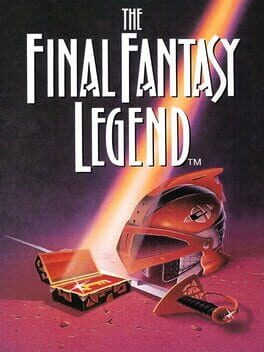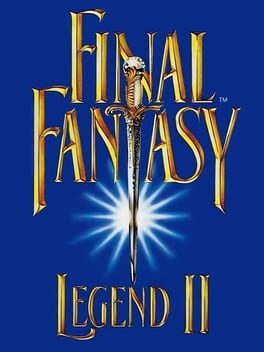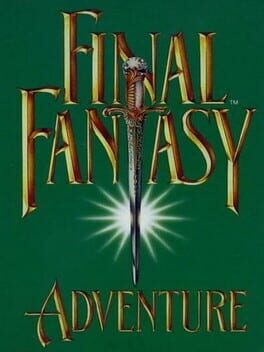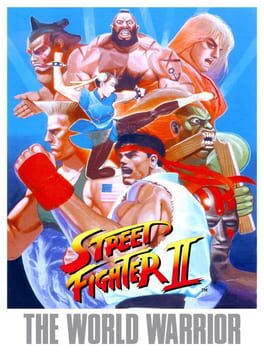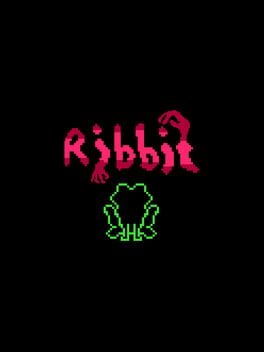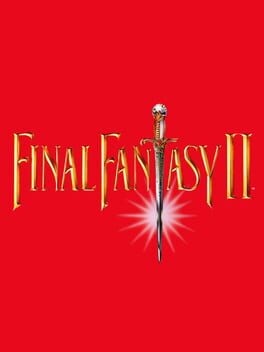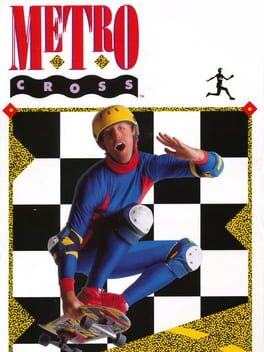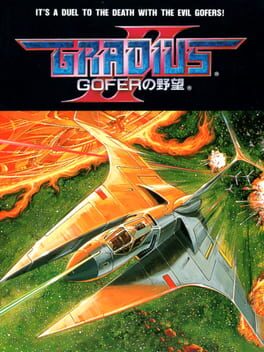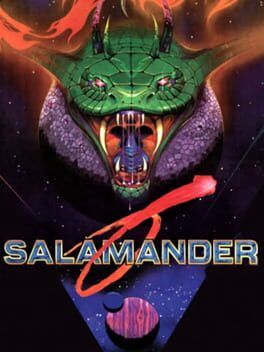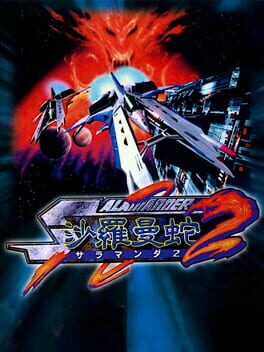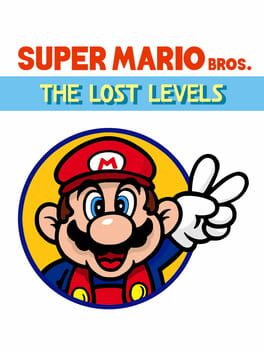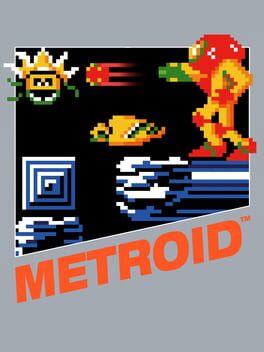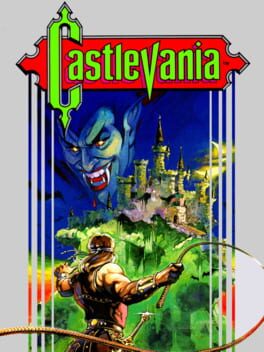TheMaxine
This review contains spoilers
This RPG is clinically insane. Deranged. Every aspect of its design hates you. The first hour of the game is a complete and total drag. Leveling up makes zero sense, it'll either happen or it won't. But there's also ways to easily exploit leveling up. But be careful not to level up too much, because the game has nothing to prevent overflow bugs happening, so your stats may just reset all the way back to 0. Permanent party member death is a thing, so is weapon durability, so is a room full of dead children, because why not!
... And yet, despite just how absolutely fucking jank this thing is, I feel like everybody owes themselves at least one playthrough of Final Fantasy Legend, otherwisely known as the first (or second, if you count FF2) game in the SaGa series. It's chaotic, actively punishing, and yet at times completely broken and in your favor. And that's part of what makes it special, what makes it unlike any other RPG series you'll play.
If you're anything like me, you'll touch the first 30 minutes of the game, go "ugh," and put it down. But then, a day later, as you give it a second chance and figure out what the hell it's trying to do... you'll start warming up to its odd yet unique concepts. It's certainly far from a perfect game, but one worth playing at least once.
... And yet, despite just how absolutely fucking jank this thing is, I feel like everybody owes themselves at least one playthrough of Final Fantasy Legend, otherwisely known as the first (or second, if you count FF2) game in the SaGa series. It's chaotic, actively punishing, and yet at times completely broken and in your favor. And that's part of what makes it special, what makes it unlike any other RPG series you'll play.
If you're anything like me, you'll touch the first 30 minutes of the game, go "ugh," and put it down. But then, a day later, as you give it a second chance and figure out what the hell it's trying to do... you'll start warming up to its odd yet unique concepts. It's certainly far from a perfect game, but one worth playing at least once.
In some ways, better than the first one. In other ways, way more stressful than the first one.
Bear in mind, that I'm not an expert on RPG's, in fact, I'm currently going through a huge backlog of all the ones I've never experienced, in order to get better at playing them. With that in mind, Legend II is so far the most difficult RPG I have played in my life. And normally I play these things to relax, so perhaps it's not a matter of the game's difficulty being poorly designed so much as it's a problem with me and me alone. Please do know that this review only reflects my own personal experience with the game. What I want out of an RPG is not what you may want.
My first mistake was focusing on leveling up my Strength stat. Worked out for me in Legend 1, utterly broke that game into pieces. Don't do that here. Agility is the most crucial stat you'll want. Not only you'll want it to get the most out of Agility-based weapons, but if you neglect leveling it up for a while, you won't be able to damage any enemies going forward. Nothing but miss, miss, misses.
After realizing that fact, you better believe I had an immense amount of grinding to make up for. But, no matter how much grinding you'll do for anything, enemies were always tough as nails, and many of my dungeon explorations were just barely clutched. Running away from encounters is an entirely justifiable strategy here. But, once you get to the final dungeon, forget about running away from anything, and prepare to face against a shitload of encounters, brought to you by the lovely cranked up encounter rate that'll drain your resources to null.
As jank as the first Legend game was, I've found it a lot more managable. With the sequel, there were many headaches, nervous laughters, moments of bafflement, points where... I thought of simply giving up. Nonetheless, I persevered, but, just for the sake of not having to come back to it ever again.
There were a couple cute and fun moments. Each area felt fairly imaginitive. Unfortunately, the maddeningly repetitive music and high difficulty contributed to a nerve-wrecking experience that I cannot recommend to anybody other than SaGa enthusiasts and those looking for a serious challenge. For someone like me though, Legend II was just II much.
Bear in mind, that I'm not an expert on RPG's, in fact, I'm currently going through a huge backlog of all the ones I've never experienced, in order to get better at playing them. With that in mind, Legend II is so far the most difficult RPG I have played in my life. And normally I play these things to relax, so perhaps it's not a matter of the game's difficulty being poorly designed so much as it's a problem with me and me alone. Please do know that this review only reflects my own personal experience with the game. What I want out of an RPG is not what you may want.
My first mistake was focusing on leveling up my Strength stat. Worked out for me in Legend 1, utterly broke that game into pieces. Don't do that here. Agility is the most crucial stat you'll want. Not only you'll want it to get the most out of Agility-based weapons, but if you neglect leveling it up for a while, you won't be able to damage any enemies going forward. Nothing but miss, miss, misses.
After realizing that fact, you better believe I had an immense amount of grinding to make up for. But, no matter how much grinding you'll do for anything, enemies were always tough as nails, and many of my dungeon explorations were just barely clutched. Running away from encounters is an entirely justifiable strategy here. But, once you get to the final dungeon, forget about running away from anything, and prepare to face against a shitload of encounters, brought to you by the lovely cranked up encounter rate that'll drain your resources to null.
As jank as the first Legend game was, I've found it a lot more managable. With the sequel, there were many headaches, nervous laughters, moments of bafflement, points where... I thought of simply giving up. Nonetheless, I persevered, but, just for the sake of not having to come back to it ever again.
There were a couple cute and fun moments. Each area felt fairly imaginitive. Unfortunately, the maddeningly repetitive music and high difficulty contributed to a nerve-wrecking experience that I cannot recommend to anybody other than SaGa enthusiasts and those looking for a serious challenge. For someone like me though, Legend II was just II much.
"Zelda 1 with experience points" seemed like it could make for a pretty fun game, and there's definitely glimmers of that here. The world map is big, but relatively memorable... there are some interesting story beats spread throughout, and the music isn't too bad either. It's really the dungeons themselves that make the game 3-4 hours longer than it should be.
Aside from that one ice-themed dungeon that had the sliding tiles, so many of them are utterly forgettable. Screens upon screens of enemies that I eventually just don't feel like wanting to fight.
Zelda 1's combat kept things interesting by forcing you to get upclose to enemies, sometimes behind them. This risk-based gameplay was tough, but very deliberate in its intent, and most importantly, was fast-paced and smooth to play.
Final Fantasy Adventure's idea of combat is to make you constantly head into the sluggish inventory system to swap out your weapons depending on which enemy is weak to what. A good chunk of your weapons have fairly good range, so there's no need for risk, and every enemy moves at a choppy 5 frames per second compared to your smooth movement. Sometimes, it's difficult to even tell if you landed a hit, the feedback on that is poor and unsatisfying.
Every now and then, you get a puzzle, and for my baby brain that struggles with those, Adventure's puzzles were actually pretty alright. I had a few "ah-ha" moments with these, and I've somehow found them to be the best part of the game. There's something here. Whenever you're not fighting, you can feel something special in this game. It's just a shame that the combat is such a major part of it, when it's too awkward, slow and clunky to deserve that much spotlight.
Aside from that one ice-themed dungeon that had the sliding tiles, so many of them are utterly forgettable. Screens upon screens of enemies that I eventually just don't feel like wanting to fight.
Zelda 1's combat kept things interesting by forcing you to get upclose to enemies, sometimes behind them. This risk-based gameplay was tough, but very deliberate in its intent, and most importantly, was fast-paced and smooth to play.
Final Fantasy Adventure's idea of combat is to make you constantly head into the sluggish inventory system to swap out your weapons depending on which enemy is weak to what. A good chunk of your weapons have fairly good range, so there's no need for risk, and every enemy moves at a choppy 5 frames per second compared to your smooth movement. Sometimes, it's difficult to even tell if you landed a hit, the feedback on that is poor and unsatisfying.
Every now and then, you get a puzzle, and for my baby brain that struggles with those, Adventure's puzzles were actually pretty alright. I had a few "ah-ha" moments with these, and I've somehow found them to be the best part of the game. There's something here. Whenever you're not fighting, you can feel something special in this game. It's just a shame that the combat is such a major part of it, when it's too awkward, slow and clunky to deserve that much spotlight.
1989
(Used a hack to double my EXP and Gold gains)
I've seen people out there think that EarthBound is a remake of the first MOTHER, so there's no point in playing the first game. I think that's wrong. Yes, they share familiar elements, but that's like saying you shouldn't play any Mario except Odyssey, because Bowser is in that one too.
I think in part, MOTHER 1 stands out due to the era it was released in. Back when every RPG had a fantasy medieval setting, MOTHER positioned itself in a modern town, with credit cards, ATM machines, convenience stores, phones and cars and trains... EarthBound plays this much more straight because it's done it before, but in the context of MOTHER 1, it's much more blatant about using these elements to create a parody RPG that constantly fucks with you, and tricks you into doing things you don't want. But when it does that, I can't even get mad, all I can do is laugh.
There's charming moments too! There's a particular scene towards the end of the game that involves the characters interacting in a way that is unlike anything you see in EarthBound. It caught me off-guard, to think something like that was included in a 1989 NES game. And albeit I can see why it wasn't done again, it's things like that that make MOTHER 1 unique.
The combat is simple, very Dragon Quest-esque, and with a decent amount of strategy introduced as you obtain further party members. There's unfortunately nothing that sets it apart like how EarthBound with the rolling HP mechanic, but this is perfectly servicable anyway.
I think the charm of the game outweighs the negatives, but I'll list them anyway. Areas are too spacious, to a point where I didn't know I missed an important area until 70% through the game. I used online maps to figure out what led to where. Having to constantly backtrack to Magicant to equip my new party members proved to get tiresome after a while, and I wish there were more convenient ways to enter and exit that place.
Oh, and I would probably add Mt. Itoi as one of the problems with the game due to its difficulty spike, but once you realize you can just run away from everything and head right to the final boss, it's really not that bad.
Worth playing once, especially if you liked the other MOTHER games. It's not the most modern-feeling RPG out there, but it's not as bad as age and it being on the NES makes it out to be.
I've seen people out there think that EarthBound is a remake of the first MOTHER, so there's no point in playing the first game. I think that's wrong. Yes, they share familiar elements, but that's like saying you shouldn't play any Mario except Odyssey, because Bowser is in that one too.
I think in part, MOTHER 1 stands out due to the era it was released in. Back when every RPG had a fantasy medieval setting, MOTHER positioned itself in a modern town, with credit cards, ATM machines, convenience stores, phones and cars and trains... EarthBound plays this much more straight because it's done it before, but in the context of MOTHER 1, it's much more blatant about using these elements to create a parody RPG that constantly fucks with you, and tricks you into doing things you don't want. But when it does that, I can't even get mad, all I can do is laugh.
There's charming moments too! There's a particular scene towards the end of the game that involves the characters interacting in a way that is unlike anything you see in EarthBound. It caught me off-guard, to think something like that was included in a 1989 NES game. And albeit I can see why it wasn't done again, it's things like that that make MOTHER 1 unique.
The combat is simple, very Dragon Quest-esque, and with a decent amount of strategy introduced as you obtain further party members. There's unfortunately nothing that sets it apart like how EarthBound with the rolling HP mechanic, but this is perfectly servicable anyway.
I think the charm of the game outweighs the negatives, but I'll list them anyway. Areas are too spacious, to a point where I didn't know I missed an important area until 70% through the game. I used online maps to figure out what led to where. Having to constantly backtrack to Magicant to equip my new party members proved to get tiresome after a while, and I wish there were more convenient ways to enter and exit that place.
Oh, and I would probably add Mt. Itoi as one of the problems with the game due to its difficulty spike, but once you realize you can just run away from everything and head right to the final boss, it's really not that bad.
Worth playing once, especially if you liked the other MOTHER games. It's not the most modern-feeling RPG out there, but it's not as bad as age and it being on the NES makes it out to be.
It's difficult for me to explain why, but somehow I've found The First Encounter to be a better game. Not that Second Encounter was all that bad, the greater variety of locales was appreciated, and I still got a kick out of slaughtering hordes of enemies.
I think my main gripe was that they went a teensy bit more overboard on the dizzyingly long linear corridors with 200 enemies charging directly at you. I mean, a good chunk of the final level was just that, but there were other examples of it. I feel like if they reigned that in and found more interesting level setpieces to fight enemies in... like that rotating tube straight out of Mario Galaxy! That was cool! But... the room where you and the enemies are constantly bouncing was far from cool. That one just made me go "who the hell thought this room was a good idea"
I think more than ever, Second Encounter made me go "man, this would be a really fun game if I had some buddies to co-op this with." As it stands, I played it alone, and the odds were overwhelming, sometimes in a cool way, and sometimes in some quite cheap and lazily designed ways. But man, to imagine blasting all these fuckers with 3 or more people, as we team up, and split up as one team handles the left side of a level, while the other handles the right... my imagination was flaring up at the idea of it, and I do hope I might be able to find a way to co-op this game sometime in the future.
Also, this comic book-ass story setup... are we ever actually going to kill Mental, or is this mysterious figure always gonna be just one step ahead of us? Come on! If I don't get to kill him in Serious Sam 2, things will get very Serious...
Anyway, did you like First Encounter? Yeah, sure, play this. Were you hoping this game would fix problems from its predecessor, like the overly spacious design? Tough luck, it doesn't. It's more of the first game, and then some.
I think my main gripe was that they went a teensy bit more overboard on the dizzyingly long linear corridors with 200 enemies charging directly at you. I mean, a good chunk of the final level was just that, but there were other examples of it. I feel like if they reigned that in and found more interesting level setpieces to fight enemies in... like that rotating tube straight out of Mario Galaxy! That was cool! But... the room where you and the enemies are constantly bouncing was far from cool. That one just made me go "who the hell thought this room was a good idea"
I think more than ever, Second Encounter made me go "man, this would be a really fun game if I had some buddies to co-op this with." As it stands, I played it alone, and the odds were overwhelming, sometimes in a cool way, and sometimes in some quite cheap and lazily designed ways. But man, to imagine blasting all these fuckers with 3 or more people, as we team up, and split up as one team handles the left side of a level, while the other handles the right... my imagination was flaring up at the idea of it, and I do hope I might be able to find a way to co-op this game sometime in the future.
Also, this comic book-ass story setup... are we ever actually going to kill Mental, or is this mysterious figure always gonna be just one step ahead of us? Come on! If I don't get to kill him in Serious Sam 2, things will get very Serious...
Anyway, did you like First Encounter? Yeah, sure, play this. Were you hoping this game would fix problems from its predecessor, like the overly spacious design? Tough luck, it doesn't. It's more of the first game, and then some.
I have very little experience with fighting games, aside from some Tekken 3 when I was younger. So, I chose to create a backlog of various popular fighting games, and the oldest version of Street Fighter 2 is first on my list, with the goal to learn the moves of every character, try them out in the campaign, and have a couple multiplayer matches with my friend. Note, that I used the PS1 version of the World Warrior version, from the "Street Fighter Collection 2." But, as far as my research confirms, it should be identical to the arcade original.
I'll say this much, the game is a lot more fun with a friend than a CPU. Which makes me wonder, how many fighting games are like that? Obviously, fighting a CPU is never gonna be as fun as a friend, but... playing this game, you quickly realize that the CPU already knows what you're gonna do from the moment you press the button. But are there fighting games in which the CPU feels more... "real" than that? Where they share a reaction time, a certain skillset, a certain degree of pattern to them like how a human would? I suppose that's something I'll have to find out as I keep going through the backlog, but for this, the CPU was very difficult to learn and predict, and that makes playing it solo kinda annoying. At the very least, you have infinite continues to retry the fights as much as you like.
Debates over the CPU's fairness aside, as a newcomer to fighting games, I can feel that there is extreme value in playing this one. I'm sure that the later editions of Street Fighter 2 will be much more fun to play, and of course that later fighting games will be more intrinsically complex in their movesets. But, to play a game like this, where each character has about 5 special moves, 2-3 of which tend to just be grabs, makes learning the game quick and easy. To me, it's the perfect introduction to the fighting genre. It was a very good idea to start with a simple game, and I'm looking forward to seeing the complexity rise over the next fighting games I play, as the genre and this series continues to evolve all the way to Street Fighter 6.
To put it simply: A perfect game for newcomers. To those experienced in the fighting game genre however, I doubt you'll get much out of this.
I'll say this much, the game is a lot more fun with a friend than a CPU. Which makes me wonder, how many fighting games are like that? Obviously, fighting a CPU is never gonna be as fun as a friend, but... playing this game, you quickly realize that the CPU already knows what you're gonna do from the moment you press the button. But are there fighting games in which the CPU feels more... "real" than that? Where they share a reaction time, a certain skillset, a certain degree of pattern to them like how a human would? I suppose that's something I'll have to find out as I keep going through the backlog, but for this, the CPU was very difficult to learn and predict, and that makes playing it solo kinda annoying. At the very least, you have infinite continues to retry the fights as much as you like.
Debates over the CPU's fairness aside, as a newcomer to fighting games, I can feel that there is extreme value in playing this one. I'm sure that the later editions of Street Fighter 2 will be much more fun to play, and of course that later fighting games will be more intrinsically complex in their movesets. But, to play a game like this, where each character has about 5 special moves, 2-3 of which tend to just be grabs, makes learning the game quick and easy. To me, it's the perfect introduction to the fighting genre. It was a very good idea to start with a simple game, and I'm looking forward to seeing the complexity rise over the next fighting games I play, as the genre and this series continues to evolve all the way to Street Fighter 6.
To put it simply: A perfect game for newcomers. To those experienced in the fighting game genre however, I doubt you'll get much out of this.
2021
oh shit that's my mod lol
(oh, and if somebody who knows how to change the screenshots sees this, would be cool if they could be updated, seeing as they're using the outdated design. and then there's the logo, i mean, it's from an endgame spoiler and not the actual logo used in most of the promotional material for crissakes....)
(oh, and if somebody who knows how to change the screenshots sees this, would be cool if they could be updated, seeing as they're using the outdated design. and then there's the logo, i mean, it's from an endgame spoiler and not the actual logo used in most of the promotional material for crissakes....)
1991
I've already experienced Final Fantasy 4 through the Pixel Remaster edition, but I wanted to go back to the SNES original for the sake of the aesthetic, seeing as the remasters all look pretty identical to each other, and just to see how does the original stack up. Expect the review to be described from this kind of perspective.
Obviously, it's the first version of the game, so you're not gonna get any of the remaster's conveniences. Battles are slower, overall menu navigation is slower, there's no run button... one of the more surprising things missing is the ATB bar. Like, the ATB system is in this game, there's just no visual indicators for when will your character be able to have their turn.
The localization is butchered to hell and back, but from my viewpoint, it's a bonus that makes the game's story more entertaining. And you're gonna want that, because the story by itself has pretty barebones characterization, and a comedically frequent amount of death scenes to increase the drama. I'll take all the narm I can get.
So far I've been a bit on the negative side though, is this still a good version of the game to play? Yeah, sure, as long as you're the patient sort. A fast forward button helps too, but patience is more important here. It is an RPG after all. The difficulty is perfectly managable, and considerably better balanced than any of the NES Final Fantasies. I think the only part I didn't like was the final dungeon, which smothered you with enemies that took forever to kill, and made for an incredibly long and exhausting dungeon. You might wanna consider splitting it into two sessions instead of trying to knock out all of it at once. I remember this dungeon being a bit tough in the remaster, but not to this extent.
I think your enjoyment of this version also verges on just how much you care about getting the "true" version, which, well, this one's not even it, because they nerfed Final Fantasy 4's difficulty when they brought it to the west and renamed it to Final Fantasy 2. So, you'd likely have to dabble in some rom hackery to get the real original version of Final Fantasy 4, but I don't have it in me to play a harder RPG than this right now, I'm a coward and like these things to be on the lax side.
Otherwise, if you just want the most QoL-like version of FF4, the Pixel Remaster will do you fine. It's faster, and surprisingly faithful now that I can compare the two. Though, I haven't played any of the other versions of FF4, so it's possible there might be even better versions of the game. Feel free to recommend them in the replies if you have any. Either way, I'll be getting to all of them in the future.
Obviously, it's the first version of the game, so you're not gonna get any of the remaster's conveniences. Battles are slower, overall menu navigation is slower, there's no run button... one of the more surprising things missing is the ATB bar. Like, the ATB system is in this game, there's just no visual indicators for when will your character be able to have their turn.
The localization is butchered to hell and back, but from my viewpoint, it's a bonus that makes the game's story more entertaining. And you're gonna want that, because the story by itself has pretty barebones characterization, and a comedically frequent amount of death scenes to increase the drama. I'll take all the narm I can get.
So far I've been a bit on the negative side though, is this still a good version of the game to play? Yeah, sure, as long as you're the patient sort. A fast forward button helps too, but patience is more important here. It is an RPG after all. The difficulty is perfectly managable, and considerably better balanced than any of the NES Final Fantasies. I think the only part I didn't like was the final dungeon, which smothered you with enemies that took forever to kill, and made for an incredibly long and exhausting dungeon. You might wanna consider splitting it into two sessions instead of trying to knock out all of it at once. I remember this dungeon being a bit tough in the remaster, but not to this extent.
I think your enjoyment of this version also verges on just how much you care about getting the "true" version, which, well, this one's not even it, because they nerfed Final Fantasy 4's difficulty when they brought it to the west and renamed it to Final Fantasy 2. So, you'd likely have to dabble in some rom hackery to get the real original version of Final Fantasy 4, but I don't have it in me to play a harder RPG than this right now, I'm a coward and like these things to be on the lax side.
Otherwise, if you just want the most QoL-like version of FF4, the Pixel Remaster will do you fine. It's faster, and surprisingly faithful now that I can compare the two. Though, I haven't played any of the other versions of FF4, so it's possible there might be even better versions of the game. Feel free to recommend them in the replies if you have any. Either way, I'll be getting to all of them in the future.
1985
It's a little fun at first, and there's a catchy song in it. But, soon enough, Arcade difficulty starts showing itself. That, or I'm just stupid. And I did feel really stupid, because no matter how well I felt I was doing, I would always run out of time at a specific point of the game. I couldn't figure out how to improve from thereon, so I dropped it.
If you liked the first Gradius, good news, it's more of that. It's just as punishing, and it's just as satisfying to get that fully upgraded ship. I also really liked the music in this one, that song at the beginning of each stage really inspired me to keep going. Overall, a nice little shoot'em up, though not one that I could beat without save states.
1986
1996
Listen, I get it's meant to be hard. But I just don't think Mario 1's controls were built for this kind of difficulty. You really have to come to terms with your limited air control in this one, in a way that Mario 1 didn't need you to. Perhaps that's also meant to be the point. In which case, it's not a matter of Lost Levels being bad, it's more likely that I just do not have the patience to learn it. And that's okay. This'll just indeed have to be a game for Super Players.
1986
I used a romhack that adds a map into the game, which really came in handy for navigating its maze-like interiors. Having played the GBA remake a ton of times also helps, so I had a general idea of where I was at most times. This eliminated one of the game's biggest hurdles, the worry of getting lost. That just leaves the gameplay.
In short, it's okay, albeit lacking in moves that make dealing with certain enemies a pain. There are many small-sized enemies, but no crouch button to be able to shoot them. Some enemies move erratically, but you're stuck with a tiny pebble shooter for the whole game, so good luck consistently hitting them. Your moveset just seems to not work with the game's actual design at times, and I think you'll feel that all the more strongly the more Metroid games you have under your belt.
I do like the music, though, and the overall exploration is alright for a 1986 game. The Screw Attack is still a godsend of an ability even this early on. There's bits of fun, among the various bits of inconvenience. I think it's worth playing once as a Metroid fan, but for your first time experience, look into the later games instead, at least from Super Metroid onward.
In short, it's okay, albeit lacking in moves that make dealing with certain enemies a pain. There are many small-sized enemies, but no crouch button to be able to shoot them. Some enemies move erratically, but you're stuck with a tiny pebble shooter for the whole game, so good luck consistently hitting them. Your moveset just seems to not work with the game's actual design at times, and I think you'll feel that all the more strongly the more Metroid games you have under your belt.
I do like the music, though, and the overall exploration is alright for a 1986 game. The Screw Attack is still a godsend of an ability even this early on. There's bits of fun, among the various bits of inconvenience. I think it's worth playing once as a Metroid fan, but for your first time experience, look into the later games instead, at least from Super Metroid onward.
1986
Sometimes, being simple pays off. And even other times, being simple paves way for a deceptively more complex game, and that's Castlevania.
It's short, it's sweet, it's Arcadey as can be, but its controls turn it into something far more slow-paced than your Striders or Contras. Castlevania demands a little more strategy, rushing in is more likely to kill you. It's all about observing your enemies, their patterns, and learning when's the right time to attack, or back off.
There's no air control, you're pretty vulnerable while climbing stairs, and your sub-weapons run on limited ammunition. Learning to work with all of this however, is a satisfying experience, and shows the strengths of making the player intuitively adapt to what the game wants, not the other way around. Castlevania's moveset is not a weakness, it's a huge rule.
Complaint-wise, I don't like the timer. It's a leftover from the arcade mentality, and it unfortunately pressures you into being on the move, which I think goes against what the level design itself demands, to slow down and think things through. Some of the graphics are a bit on the muddy side as well, though I get the feeling that's because I'm not playing on a CRT monitor, thus, the pixelization stands out a lot more.
Again, I must stress that Castlevania is a short game. Be patient with it, try to understand what it wants out of you, and it won't take that long before you'll be knocking each level down. It's a good game to start with, though, if you're looking for more refined classic-style Castlevanias, Super Castlevania IV, Rondo of Blood, or Castlevania Bloodlines are good starting points too.
It's short, it's sweet, it's Arcadey as can be, but its controls turn it into something far more slow-paced than your Striders or Contras. Castlevania demands a little more strategy, rushing in is more likely to kill you. It's all about observing your enemies, their patterns, and learning when's the right time to attack, or back off.
There's no air control, you're pretty vulnerable while climbing stairs, and your sub-weapons run on limited ammunition. Learning to work with all of this however, is a satisfying experience, and shows the strengths of making the player intuitively adapt to what the game wants, not the other way around. Castlevania's moveset is not a weakness, it's a huge rule.
Complaint-wise, I don't like the timer. It's a leftover from the arcade mentality, and it unfortunately pressures you into being on the move, which I think goes against what the level design itself demands, to slow down and think things through. Some of the graphics are a bit on the muddy side as well, though I get the feeling that's because I'm not playing on a CRT monitor, thus, the pixelization stands out a lot more.
Again, I must stress that Castlevania is a short game. Be patient with it, try to understand what it wants out of you, and it won't take that long before you'll be knocking each level down. It's a good game to start with, though, if you're looking for more refined classic-style Castlevanias, Super Castlevania IV, Rondo of Blood, or Castlevania Bloodlines are good starting points too.
